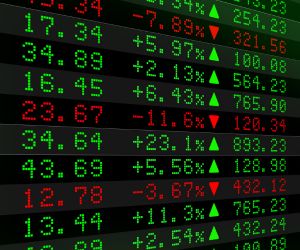Coca-Cola is an iconic beverage company, famous for its wide range of soft drinks and other beverages. It is listed on the New York Stock Exchange (NYSE), a significant exchange for major consumer goods companies. Is it a good investment then? Are there ups and downs? What investment strategy should I use with the stock? This article will answer these questions and more.

Steps to Invest in Coca-Cola
Research and Analysis:
The Coca-Cola Company is one of the most recognized brands in the world, a leader in the non-alcoholic beverage industry. Its business model is based on the sale of concentrates and bottling franchises, allowing it to maintain high profit margins. Before investing in KO, review its sales growth, profit margin, dividends, and its ability to innovate in sugar-free and healthy beverages.Opening an Investment Account:
Coca-Cola's shares (KO) are traded on the NYSE. To invest, you need to open an account with a brokerage firm that has access to the US market. Some brokers allow the purchase of fractional shares, making it easier to invest in this company. Typically, you will be asked for a copy of your identification and a utility bill (such as from a power or water company) to verify your identity and address. Compare the fees, trading platforms, and services each brokerage firm offers to choose the one that best fits your needs.Define the Investment Strategy:
Coca-Cola is a defensive stock, as its business remains stable even during economic crises. It is an ideal option for long-term investors, especially those interested in dividends. The company has a history of over 60 years of increasing its dividends, making it a Dividend King.Execution and Monitoring:
Coca-Cola benefits from its global presence but faces challenges like changing consumer habits and sugar regulations. It is crucial to monitor its expansion in healthy beverages, performance in emerging markets, and production costs. It is also advisable to follow its quarterly reports and growth strategies.Portfolio Diversification:
To reduce risks, you can combine investing in KO with other consumer goods stocks like PepsiCo (PEP), Nestlé (NSRGY), or Procter & Gamble (PG). You can also consider consumer staples sector ETFs, such as the Consumer Staples Select Sector SPDR Fund (XLP).
SWOT Analysis of Coca-Cola as an Investment
This SWOT analysis examines the internal and external factors affecting the performance of Coca-Cola, one of the most recognized beverage brands globally. It identifies the Strengths and Weaknesses (internal) and the Opportunities and Threats (external) that impact its position in the consumer goods sector.
Strengths:
Global brand and leadership: Coca-Cola is one of the most valuable and recognized brands worldwide, providing it with a competitive edge in the beverage market.
Extensive distribution network: Its robust bottling and distribution infrastructure allows it to reach virtually anywhere internationally.
Product diversification: While carbonated drinks are its main business, it has expanded its portfolio to include water, juices, teas, and energy drinks, reducing dependence on a single product.
Economies of scale: Its large size and production volume optimize costs and strengthen the brand's position.
Weaknesses:
Dependence on sugary drinks: Despite diversification, carbonated beverages represent a significant portion of its sales, facing health concerns and shifts in consumer preferences.
Intense competition: The beverage market is highly competitive, with global and local rivals pressuring prices and market share.
Exposure to fluctuations in input costs: Changes in the prices of sugar, sweeteners, or packaging can impact its profit margins.
Opportunities:
Growth in healthy beverages: The rise of low-sugar, organic, or functional products provides opportunities to innovate and launch new business lines.
Expansion in emerging markets: Increasing purchasing power in regions of Asia, Africa, and Latin America offers growth opportunities.
Innovation in sustainable packaging: The adoption of recyclable and eco-friendly materials can enhance the brand image and respond to consumer demands.
Threats:
Stricter taxes and regulations: Several countries implement taxes on sugary beverages or warning labels, which can affect sales and operating costs.
Changes in consumer preferences: The trend towards a healthier lifestyle may reduce the consumption of traditional sodas.
Global economic fluctuations: Recessions or international crises can impact spending on beverages and affect its revenue.
What is an International Stock Broker?
An International Stock Broker is the entity (or platform) that allows you to buy and sell shares of companies listed on stock exchanges in various countries around the world. Unlike a local brokerage, the primary focus of International Brokers is to provide access to global markets, such as the United States, Europe, or Asia.
Why do we need an International Stock Broker?
Investing in international stocks can be an excellent way to diversify your portfolio, as it gives you the opportunity to participate in the growth of economies and sectors worldwide. However, operating in global markets is not as simple as trading in the local market: it requires specific knowledge, compliance with international regulations, and the use of advanced trading platforms.
An International Stock Broker brings all these investment opportunities together in one place and allows you to access different exchanges and trading conditions in exchange for a commission.
Examples and Comparisons:
There are several well-known International Stock Brokers, such as Interactive Brokers, eToro, TD Ameritrade, or Saxo Bank, among others. Each offers trading platforms with particular features and commissions that vary according to the service. Some stand out for providing advice and market analysis in several languages, while others may offer more competitive operational costs or social investment tools. These details allow you to choose the option that best suits your needs and investment profile.
Regulatory and Security Aspects
It is essential that the International Stock Broker you choose is regulated by recognized entities in the country where it operates, such as the U.S. Securities and Exchange Commission (SEC) in the United States, the Financial Conduct Authority (FCA) in the United Kingdom, or the Securities Commission in Brazil, among others. This oversight ensures that the broker complies with strict security and transparency standards, giving you more confidence in investing your money.
How do Brokers "connect" to International Markets?
Through agreements with foreign stock exchanges and the use of advanced technological platforms, International Stock Brokers process buy and sell orders placed by their clients. They arrange transactions according to price, order arrival, and other parameters, and charge a commission when the trade is executed. This technological infrastructure allows operations to be carried out quickly and securely, facilitating real-time tracking of your investments.
In conclusion, an International Stock Broker is your gateway to the most important stock markets in the world. Thanks to its regulation, trading platforms, and knowledge of global markets, you can diversify your portfolio and seek growth opportunities in different sectors and countries.





